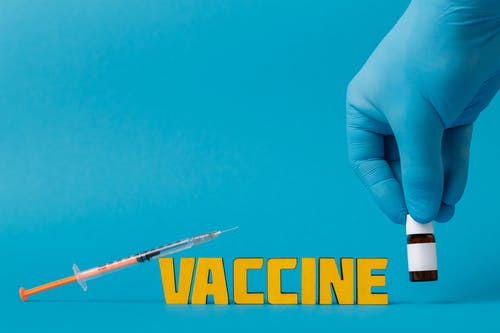Phase 3 CLOVER Trial for Pfizer’s Investigational Clostridioides Difficile Vaccine Indicates Strong Potential Effect in Reducing Duration and Severity of Disease Based on Secondary Endpoints
NEW YORK--(BUSINESS WIRE)-- Pfizer Inc. (NYSE:PFE) today announced results from the CLOVER trial (CLOstridium difficile Vaccine Efficacy TRial), a pivotal Phase 3 study evaluating its Clostridioides difficile (C. difficile)vaccine candidate (PF-06425090) in the prevention of C. difficile infection (CDI). Initial analyses of two protocol defined secondary endpoints indicated a highly favorable benefit in reducing CDI severity and 100% vaccine efficacy in preventing medically attended CDI, although the trial did not meet its pre-specified primary endpoint of prevention of primary CDI. Safety reviews indicated that the investigational vaccine was safe and well tolerated.

“We are encouraged by the promising potential benefit observed against more severe C. difficile infection, as a large portion of cases lead to extended diarrhea episodes that can require hospitalization,” said Kathrin U. Jansen, Ph.D., Senior Vice President and Head of Vaccine Research & Development, Pfizer. “We will evaluate next steps for our program in coordination with regulatory agencies. We are grateful to everyone who made the CLOVER study possible, including the study investigators and the trial participants for their contribution to this important research.”
Clostridioides difficile infection is a serious infection associated with diarrhea that may progress to severe and debilitating illness with potentially fatal outcomes,1,2 and the United States Centers for Disease Control and Prevention (CDC) has classified CDI as an urgent public health threat.3 Close to 10 percent of patients aged 65 or older with a healthcare-associated C. difficile infection are at risk of death within 30 days of diagnosis and constitute 90 percent of those with risk for fatal outcome. All laboratory-confirmed CDI cases are among persons with diarrhea who seek medical care and have a stool specimen collected and tested for C. difficile. In 2017, the incidence of medically attended laboratory-confirmed CDI cases in those age 50 and older and those age 65 and older was 286/100,000 persons and 452/100,000 persons, respectively.4
CLOVER enrolled approximately 17,500 adults, 50 years and older. The study was expected to accrue 66 cases of CDI within two years of the primary vaccination series. Due to significant operational challenges created in part by the COVID-19 pandemic, the final analysis was performed at 42 cases within four years after agreement from the U.S. Food and Drug Administration (FDA) to amend the protocol.
The two primary efficacy endpoints in CLOVER were first primary episode of CDI ≥14 days following completion of the third dose and first primary episode of CDI ≥14 days following completion of the second dose. Vaccine efficacy under the primary endpoint was 31% (96.4% CI -38.7, 66.6) following the third dose and 28.6% (96.4% CI -28.4, 61.0) following the second dose for the C. difficile vaccine candidate. For all CDI cases recorded 14 days post dose 3, vaccine efficacy 49%, 47% and 31% up to 12 months, 24 months and at final analysis, respectively.
The vaccine was very well tolerated and showed a favorable safety profile. Local and systemic reactions were mild to moderate, with mostly pain at the injection site with higher incidence after the second and third doses. The number of participants reporting overall adverse events (AEs), serious AEs (SAEs), withdrawals and deaths were similar between the two groups.
A highly favorable potential benefit was noted in reducing the duration and severity of disease. The pre-specified secondary endpoint of the proportion of participants who sought medical attention for CDI showed a 0-11 case split, corresponding to 100% vaccine efficacy. None of the participants with CDI in the vaccine group (0 out of 17; n=8,766) required medical attention (including hospitalization) compared to 11 (out of 25; n=8,769) in the placebo group. In addition, the median CDI duration was 1 versus 4 days and the mean duration was 3 versus 16 days comparing vaccine to placebo, corresponding to a 75% and 80% reduction in disease episode, respectively, in vaccinated people.
Pfizer will further evaluate data from the trial and determine next steps for our C. difficile vaccine program. The company plans to submit for presentation of the Phase 3 CLOVER trial results, including all secondary endpoints, at a future medical congress and for publication in a peer-reviewed scientific journal.
Reference
Lessa FC, Winston LG, McDonald LC; Emerging Infections Program C. difficile Surveillance Team. Burden of Clostridium difficile infection in the United States. N Engl J Med. 2015 Jun 11;372(24):2369-70. https://doi.org/10.1056/NEJMc150519.
2 Balsells E, Shi T, Leese C, Lyell I, Burrows J, Wiuff C, et al. Global burden of Clostridium difficile infections: a systematic review and meta-analysis. J Glob Health. 2019;9(1):010407. https://doi.org/10.7189/jogh.09.01040.
3 CDC Disease Threat 2019 at https://www.cdc.gov/drugresistance/pdf/threats-report/2019-ar-threats-report-508.pdf
4 2017 EIP Annual Report at https://www.cdc.gov/hai/eip/Annual-CDI-Report-2017.html
https://www.pfizer.com/news/press-release/press-release-detail/phase-3-clover-trial-pfizers-investigational-clostridioides
Disclaimer:《Phase 3 CLOVER Trial for Pfizer’s Investigational Clostridioides Difficile Vaccine Indicates Strong Potential Effect in Reducing Duration and Severity of Disease Based on Secondary Endpoints》Edited and sorted by Seagull Pharmacy's editors. Please contact us in time if there is any infringement. In addition, the suggestions for drug usage, dosage and disease mentioned in the article are only for medical staff's reference, and can not be used as any basis for medication!